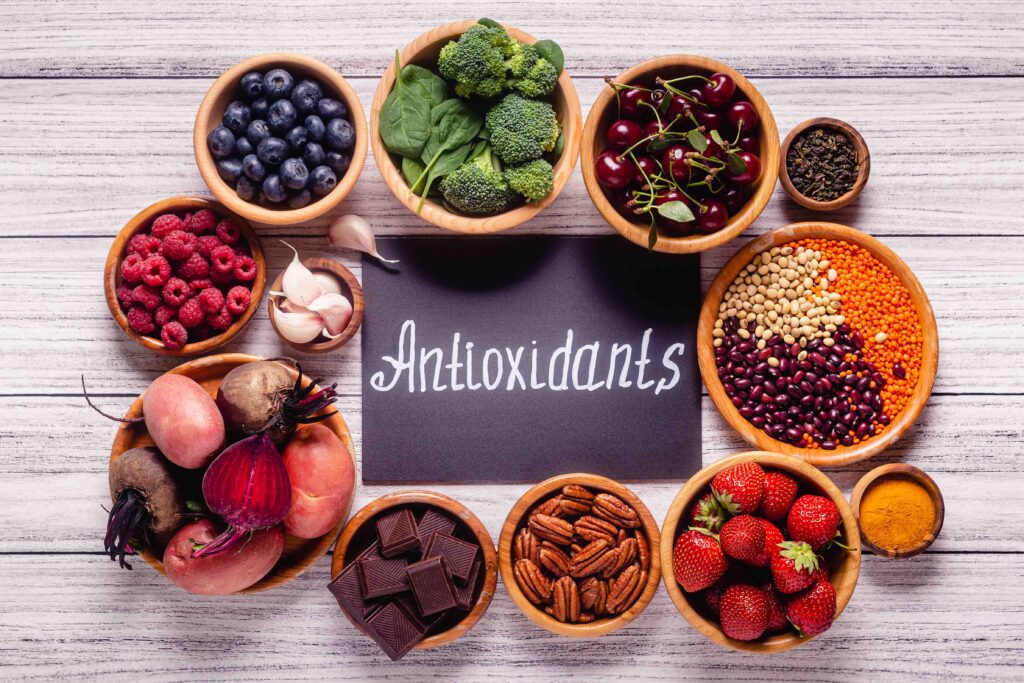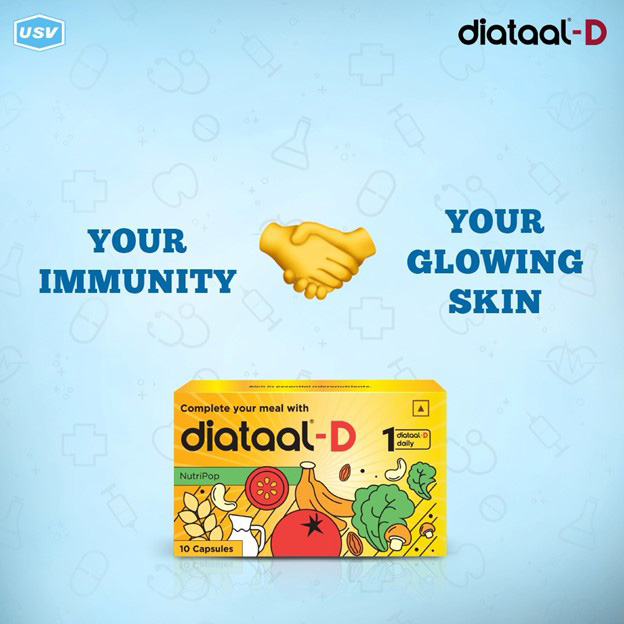
Did You Know About the Lesser Heard-Of Immunity Boosters- Antioxidants
The recent pandemic and the rise of various other infections has compelled everyone to look for ways to “boost their immunity” and maintain good health. Whenever we talk about staying healthy and boosting our immune system, the word “Antioxidants” is frequently brought up.
The term “Antioxidant” refers to any substance that has the ability to fight reactive oxygen species (ROS) i.e. unstable chemicals that harm DNA, and other parts of the body’s cells. They protect our body from the toxic compounds that are produced as a result of exposure to certain chemicals, smoking, pollution and radiation.

There are many types of antioxidants in nature, and each of them have various health benefits. Selenium, Vitamin A and associated carotenoids, Vitamin C, Vitamin E, Chromium are just a few of the well- known antioxidants. These antioxidants apart from boosting one’s health, also play an important role in enhancing skin health as well as improving energy levels.
Antioxidants In Boosting Immunity

The most commonly known antioxidants to boost immunity are Zinc and Selenium by scavenging free radicals, produced in the body and destroying them, thus forming protective shields from various infections. Similarly, Cyanocobalamin (Vitamin B12) also boosts immunity by promoting the growth of antibodies.
Antioxidants for Skin Health
Apart from boosting immunity, Antioxidants also, enhance skin health. An essential skin carotenoid called beta-carotene helps treat sun sensitivity and maintain beautiful, nourished skin. Zinc is necessary for healthy skin growth as it aids in the production of collagen. The anti-inflammatory characteristics of the water-soluble B vitamins, nicotinamide (B3) and folic acid (B9) improve the health of the skin.

Alpha Lipoic Acid (ALA)
Over the years, ALA has received a lot of attention in the management or treatment of a variety of ailments.
- Antioxidant effect: Fights toxins in the body and aids in the renewal of other vital antioxidants like glutathione, vitamins C and E.
- Anti-diabetic effect: ALA is known to increase blood glucose uptake in cells and improve insulin sensitivity, which helps to control blood sugar levels.
Vitamin D3(Cholecalciferol)
Apart from bone formation and muscle growth, Vitamin D3, also aids in growth of immune building cells as well as immune response to infection. It has a multifaceted role in immunity which includes its beneficial effect on immune boosting cells, anti-inflammatory effect and its supplementation also helps

to prevent autoimmune diseases like multiple sclerosis, diabetes etc.

Therefore, in order to boost immunity and ensure good health and wellbeing, it is important to include these micronutrients in our diet. However, due to today’s fast lifestyle and poor eating habits we often lose out on these micronutrients, which could lead to deficiencies. According to the World Health Organization (WHO), more than 2 billion people’s diet is deficient in various vitamins and micronutrients
Diataal D provides vitamins and minerals that are essential for maintaining good health and boosting immunity:

- Alpha-Lipoic Acid (ALA), Vitamin D3, Betacarotene, Zinc, Cyanocobalamin (B12), Folic Acid, Selenium, Cholecalciferol are required to enhance immunity
- Betacarotene, Zinc, Nicotinamide are required due to their role in healthy skin
- Vitamin B Complex (Nicotinamide, Pyridoxine, Cyanocobalamin, Folic Acid) play a role in energy production.
Inclusion of vitamins and minerals through a balanced diet along with supplementation when required, helps in boosting one’s immunity and lowering the risk of diseases.
Authored by:
Sheryl Salis
Registered Dietitian (RD), Certified Diabetes Educator, Insulin Pump Specialist
Founder – Nurture Health Solutions
References
- Nkengfack G., Englert H., Haddadi M. (2019) Selenium and Immunity. In: Mahmoudi M., Rezaei N. (eds) Nutrition and Immunity. Springer, Cham. https://doi.org /10.1007 /978-3-030- 16073-9_9
- Erkurt MA et al., Effects of Cyanocobalamin on Immunity in Patients with Pernicious Anemia. Med Princ Pract 2008;17:131–135 doi: 10.1159/000112967
- Shankaranarayanan J, Arunkanth K, Dinesh K C. Beta Carotene -Therapeutic Potential and Strategies to Enhance Its Bioavailability. Nutri Food Sci Int J. 2018; 7(4): 555716. DOI: 10.19080/NFSIJ.2018.07.555716
- Bhowmik D et al., A potential medicinal importance of zinc in human health and chronic Disease. Int J Pharm Biomed Sci 2010, 1(1), 05-11
- GISONDI P et al., Folic acid in general medicine and dermatology. Journal of Dermatological Treatment. 2007; 18: 138–146
- Salehi, B., Berkay Yılmaz, Y., Antika, G., Boyunegmez Tumer, T., Fawzi Mahomoodally, M., Lobine, D., Akram, M., Riaz, M., Capanoglu, E., Sharopov, F., Martins, N., Cho, W. C., & Sharifi-Rad, J. (2019). Insights on the Use of α-Lipoic Acid for Therapeutic Purposes. Biomolecules, 9(8), 356. https://doi.org/10.3390/biom9080356
- Basit S. (2013). Vitamin D in health and disease: a literature review. British journal of biomedical science, 70(4), 161–172. https://doi.org/10.1080/09674845.2013.11669951
- Khorasanizadeh M.H., Eskian M., Camargo C.A., Rezaei N. (2019) Vitamin D and the Immune System. In: Mahmoudi M., Rezaei N. (eds) Nutrition and Immunity. Springer, Cham. https://doi.org/10.1007/978-3-030-16073-9_2
- Aranow C. Vitamin D and the immune system. J Investig Med. 2011;59(6):881-886. doi:10.2310/JIM.0b013e31821b8755
- Gonmei, Z., & Toteja, G. S. (2018). Micronutrient status of Indian population. The Indian journal of medical research, 148(5), 511–521. https://doi.org/10.4103/ijmr.IJMR_1768_18



